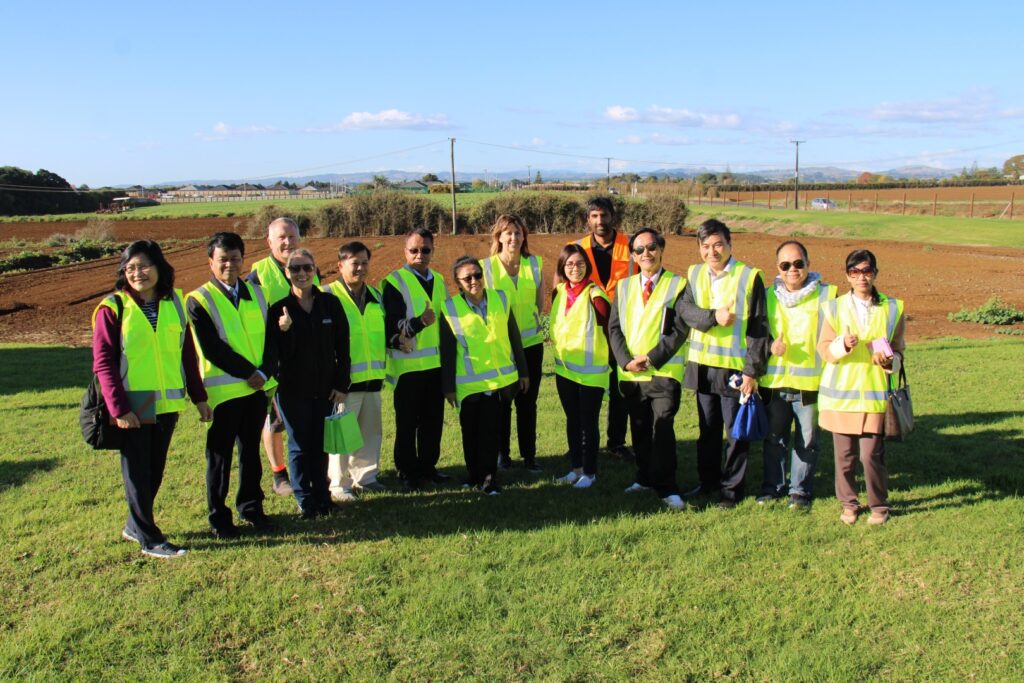Senior government officials from Cambodia, Lao PDR, Myanmar, and Vietnam (CLMV) recently visited New Zealand from April 29–May 3 to learn about NZ best practices in managing food safety in fresh horticultural value chains.
As part of Mekong Institute’s Promoting Safe Food for Everyone (PROSAFE) Project, the one-week structured learning visit brought together senior officials from key food safety agencies in CLMV to enhance their awareness and understanding of the current food safety management systems adopted in New Zealand and provide them ideas on how to better promote and improve food safety in their respective countries.
On the first day of the study tour, the CLMV delegation met with representatives of AsureQuality, Ltd., (AQ) and Ministry of Primary Industries (MPI). AQ is a state-owned enterprise providing independent food safety inspection and certification services to producers, processors, and retailers across different commodities including fresh produce, dairy, livestock, and manufactured food. As a leading food safety organization in New Zealand, AQ also provides food testing and other laboratory services to a number of food companies from different parts of the world.
At the meeting, Ms. Leonie Fraser, AQ Commercial Services Manager, briefly discussed AQ’s partnership with MI in designing and delivering the PROSAFE safe food courses. In the last three years, AQ trainers have been invited to MI to share the NZ expertise and experience in addressing key food safety concerns in fresh fruits and vegetables. Ms. Sally Johnson of MPI, on the other hand, talked about the existing legal and institutional mechanisms to ensure food safety in NZ. She emphasized that the robust regulatory system and strong consumer demand for safe food have contributed in maintaining NZ’s global reputation in food safety and biosecurity. After the meeting, the group visited AQ Auckland laboratories for microbiological, chemical, and pest identification tests and services.
While in Auckland, the group also visited the tomato glasshouses and packinghouse of T&G Covered Crops and the vegetable processing facilities of RC Hari & Sons. T&G Covered Crops covers 40 percent of the total tomato production in NZ, while RC Hari & Sons supplies fresh vegetables, including onions, cabbages, and cauliflowers, to major supermarket chains in the country.
The delegation also traveled to Tauranga to visit Seeka Huka Pak, one of the most successful kiwifruit production and processing plants in the country. The group was exposed to how kiwifruits, NZ’s largest horticultural export, are grown, harvested, processed, packed, and distributed for domestic and export markets. The group also went to Countdown Supermarket in Rotorua, where Countdown and Woolworths food quality managers talked about how fresh produce are packaged, displayed, and sold in different branches across the country. Lastly, the study visit included a cultural visit to the living geothermal village of Whakarewarewa to learn about the Maori heritage and culture.
This study visit sought to address one of the PROSAFE Project’s primary targets of strengthening CLMV food safety stakeholder networks, mostly composed of key public and private sector representatives committed on working toward demonstrable changes in food safety.








